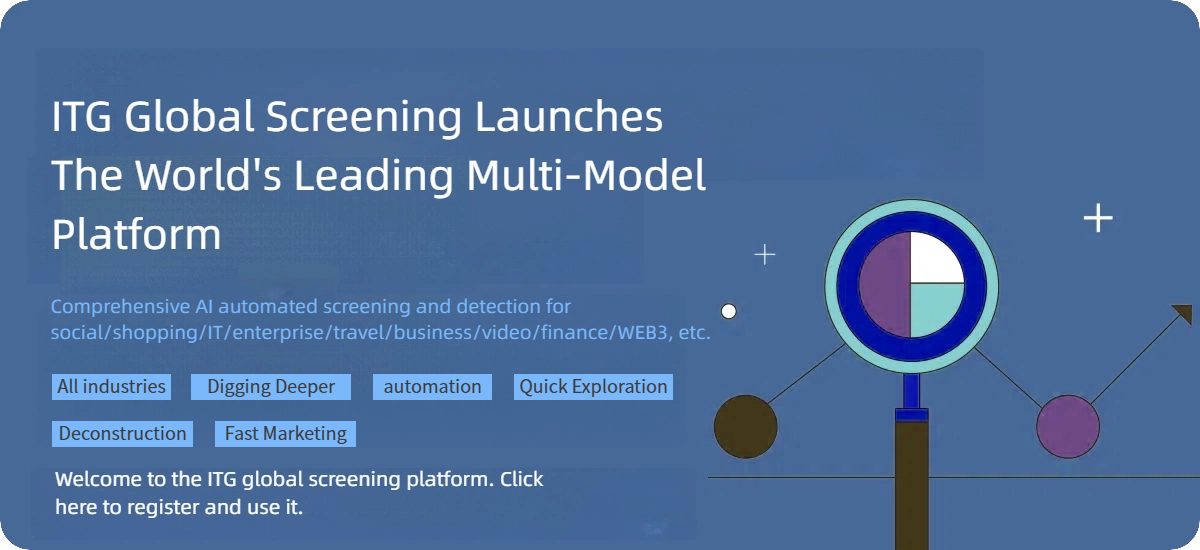In global business expansion, WhatsApp, with its over 2 billion monthly active users, has become a core channel for enterprises to connect with overseas customers, conduct precise marketing, and provide efficient customer service. For businesses looking to leverage WhatsApp at scale, bulk WhatsApp number generation is the primary prerequisite. However, for enterprises, bulk WhatsApp number generation is not simply "repeating the personal registration process." It is a systematic project that requires balancing efficiency and risk within a compliant framework, combined with professional tools and scientific methods. Many enterprises, when generating numbers in bulk, often use non-compliant numbers by overlooking platform rules, or end up with a high proportion of invalid numbers due to a lack of efficient screening tools. This ultimately not only wastes costs but may also lead to the risk of batch account bans. This article will focus on compliant methods for enterprise bulk WhatsApp number generation, detailing the entire process from number acquisition, screening, and verification to management and operation. It will also cover application techniques using tools like the ITG Omni-Filter Tool, helping enterprises complete bulk WhatsApp number generation safely and efficiently, laying a solid foundation for overseas business growth.
I. Compliant Prerequisites for Enterprise Bulk WhatsApp Number Generation: Understand the Rules First, Then Talk About Efficiency
For enterprises, the core bottom line of bulk WhatsApp number generation is "compliance." Only numbers that comply with WhatsApp platform rules and local laws and regulations can be used stably in the long term, avoiding business interruptions caused by violations.
(I) Understand WhatsApp's Core Requirements for Enterprise Bulk Number Generation
The WhatsApp platform has clearly defined two "red lines" for enterprise bulk WhatsApp number generation: First, it prohibits the use of "virtual number ranges," "second-hand invalid number ranges," and "non-real-name verified numbers." Such numbers cannot pass official verification and may trigger platform risk control. Second, it prohibits "bulk registration without context." Enterprises need to explain the purpose of bulk WhatsApp number generation to the platform (e.g., "for customer service communication in the Southeast Asian market," "for new product promotion in the European and American markets") and complete registration through officially approved channels (such as the WhatsApp Business API).
Furthermore, laws and regulations regarding mobile number management vary across different countries/regions (e.g., the EU's GDPR requires number acquisition to be based on user consent). Before undertaking bulk WhatsApp number generation, enterprises must understand the regulatory requirements of the target market to ensure number acquisition and use comply with local laws, avoiding compliance risks.
(II) Choose Compliant Number Sources: Reject "Black Market Number Ranges," Prioritize Official Partnership Channels
The first step in bulk WhatsApp number generation is acquiring compliant numbers. Enterprises should prioritize the following three types of channels:
-
Official Partnerships with Overseas Carriers: Sign cooperation agreements with正规 carriers in the target market (e.g., Telkomsel in Indonesia, T-Mobile in the US) to purchase mobile numbers in bulk that are already real-name verified and not banned. These numbers have the highest verification success rate and strongest compliance.
-
WhatsApp Official Authorized Number Providers: Obtain dedicated number ranges through WhatsApp partner platforms (e.g., Twilio, Plivo). These numbers have passed platform pre-screening and can be directly used for bulk WhatsApp number generation.
-
User-Authorized Numbers: Acquire numbers based on user consent (e.g., users fill in their mobile number on the official website and check "agree to receive WhatsApp notifications"). These numbers are primarily used for activating existing customers rather than generating entirely new WhatsApp numbers, but user authorization records must be kept for compliance checks.
It is crucial to be wary of some "black market channels" that claim to provide "bulk virtual number ranges" at low prices. Such numbers not only fail the verification step of WhatsApp number generation but may also lead to the enterprise's IP being blacklisted by the platform, affecting future business operations.
II. Practical Steps for Enterprise Bulk WhatsApp Number Generation: Combine ITG Omni-Filter Tool to Improve Efficiency and Success Rate
The complete process for enterprise bulk WhatsApp number generation is "Number Acquisition → Screening & Verification → API Registration → Activation & Management." Among these, "Screening & Verification" is the key link determining efficiency, and the ITG Omni-Filter Tool can play a core role here, significantly reducing the proportion of invalid numbers.
Step 1: After Bulk Number Acquisition, Use ITG Omni-Filter Tool to Eliminate Invalid Numbers
After acquiring numbers in bulk through compliant channels, approximately 30%-40% might have issues like "already banned," "cannot receive verification codes," or "number region doesn't match the target market." Using these directly for WhatsApp number generation leads to verification failure, wasting time and cost. At this stage, leveraging the ITG Omni-Filter Tool to screen based on the following dimensions is essential:
-
Status Screening: The tool queries via WhatsApp official interfaces whether a number is "already banned" or "in suspended status," automatically filtering out invalid numbers.
-
Verification Code Reception Test: The tool simulates sending test SMS to target numbers, filtering those that can receive SMS normally, ensuring subsequent WhatsApp number generation can successfully obtain verification codes.
-
Regional Match Screening: Based on the enterprise's target market (e.g., "Southeast Asia," "Europe"), filter number ranges corresponding to specific countries/regions (e.g., Indonesia +62, UK +44), avoiding mismatch between number origin and business scenario.
-
Compliance Screening: The tool has a built-in global number compliance database, automatically excluding numbers that don't meet the target market's regulations (e.g., non-real-name numbers, numbers marked as "spam").
Example: A cross-border e-commerce company acquired 1000 Southeast Asian mobile numbers through an overseas carrier. Before using the tool, direct WhatsApp number generation resulted in only 480 numbers being successfully verified (48% success rate). After using the ITG Omni-Filter Tool, 720 valid numbers were first identified, and ultimately 705 were successfully verified (98% success rate). This not only saved the procurement cost of 280 invalid numbers but also reduced the WhatsApp number generation time from 5 hours to 1.5 hours.
Step 2: Complete Bulk Registration and Verification via WhatsApp Business API
After screening for valid numbers, enterprises need to complete the bulk registration and verification for WhatsApp number generation through the WhatsApp Business API. This is the only officially recognized channel for bulk registration. The specific steps are:
-
Apply for a WhatsApp Business API Account: Log in to the WhatsApp Business Platform website, submit business license, business scenario description, target market information, and wait for official review (typically 1-3 business days).
-
Integrate API Interface with ITG Omni-Filter Tool: After approval, obtain the API key and endpoint address. Import the list of valid numbers filtered by ITG into the API backend. Set the "verification code reception method" (SMS/voice) and "registration frequency" (avoid high-frequency registration triggering risk control; recommended not to register more than 50 numbers per hour).
-
Automate Verification and Activation: Initiate bulk registration via the API. The system will automatically send a WhatsApp verification SMS to each number. The ITG Omni-Filter Tool can capture the verification codes in real-time and relay them back to the API backend to complete automatic verification. Upon successful verification, the system automatically activates the number, completing the WhatsApp number generation. Enterprises can check the registration status (success/failure/pending verification) of each number in the backend.
Compared to traditional manual registration (requiring manual number input, receiving verification codes, completing verification), the combination of API + ITG Omni-Filter Tool can increase the efficiency of enterprise bulk WhatsApp number generation by more than 10 times, while also avoiding human error.
Step 3: Post-Bulk Activation, Complete Initial Number Configuration
After completing the registration and verification for WhatsApp number generation, enterprises need to perform initial configuration on the numbers to prepare for subsequent operations:
-
Complete Account Information: Uniformly set account profile picture (company LOGO), nickname (e.g., "XX Brand ID Customer Service 01"), bio (explaining account purpose, e.g., "Dedicated to after-sales inquiries for the Indonesian market, online 9:00-18:00 weekdays").
-
Set Up Automated Replies: Set welcome messages for newly added customers (e.g., "Hello! Welcome to consulting XX Brand via WhatsApp. We will reply within 1 hour.") to improve customer experience.
-
Group Management: Within the ITG Omni-Filter Tool, group numbers by "target market" and "business purpose" (e.g., "Indonesia Customer Service Group," "Europe/US Marketing Group") for convenient and precise assignment of operational tasks later.
III. The Core Value of ITG Omni-Filter Tool in Enterprise Bulk WhatsApp Number Generation: Beyond Screening, Enabling Full Lifecycle Management
In enterprise bulk WhatsApp number generation, the ITG Omni-Filter Tool is not only used for "screening invalid numbers" but also operates throughout the entire process—"pre-generation, during generation, post-generation"—providing an integrated solution for enterprises.
(I) Pre-Generation: Reduce Number Procurement Costs, Proactively Avoid Compliance Risks
The ITG Omni-Filter Tool can assist in evaluating number supplier qualifications before procurement: By analyzing samples provided by suppliers, it assesses metrics like "ban rate," "verification success rate," and "regional match degree," helping enterprises choose quality suppliers and avoid purchasing low-quality numbers. Simultaneously, the tool can pre-screen numbers for compliance with the target market's requirements (e.g., real-name verification status, presence on local carrier whitelists), reducing the compliance risk of WhatsApp number generation at the source.
(II) During Generation: Real-time Monitoring of Registration Status, Dynamic Adjustment of Registration Strategy
During the registration process of bulk WhatsApp number generation, the ITG Omni-Filter Tool monitors the registration status of each number in real-time: If the "verification failure rate" suddenly increases within a certain period (e.g., exceeding 20%), the tool automatically triggers an alert, indicating "possible high registration frequency" or "number quality issues," allowing the enterprise to promptly adjust the registration frequency or pause registration to avoid triggering platform risk control. Furthermore, the tool records the reason for each verification failure (e.g., "verification code not received," "incorrect verification code," "number banned"), providing data support for optimizing number screening standards later.
(III) Post-Generation: Number Operation and Risk Alerting, Extending Number Lifespan
After completing bulk WhatsApp number generation, the ITG Omni-Filter Tool can continue to be used for the daily operational management of the numbers:
-
Activity Monitoring: Regularly statistics like "message volume," "customer reply rate," and "new contact adds" for each number, flagging "low-activity numbers" (e.g., no messages sent for 7 consecutive days) and reminding operators to reactivate them (e.g., by sending compliant greeting messages).
-
Risk Alerting: Monitors in real-time for situations like "abnormal logins" (e.g., login from a non-target region), "reported by customers," or "triggering platform risk control restrictions." Upon detecting a risk, it immediately sends an alert notification to the enterprise, assisting in rapid response (e.g., changing login device, submitting an appeal).
-
Data Analysis and Reporting: Automatically generates operational reports for the bulk WhatsApp number generation, including metrics like "verification success rate," "activity distribution," and "proportion of risky numbers," helping enterprises optimize their WhatsApp number generation strategy (e.g., adjusting number procurement channels, optimizing registration frequency).
IV. Management Tips Post Enterprise Bulk WhatsApp Number Generation: From "Generation" to "Operation," Maximizing Number Value
Bulk WhatsApp number generation is not the end goal. Scientific management techniques enable numbers to continuously create value for the business, avoiding "idleness post-generation" or "bans due to poor management."
(I) Number Allocation: Precise Distribution Based on "Business Scenario + Personnel Division"
Assign the bulk-generated numbers to different teams based on business needs, clarifying usage responsibilities:
-
Customer Service Team: Allocate "high-stability numbers" (verification success rate >95%, no risk record) for customer inquiries and after-sales handling. Each agent manages 5-10 numbers to avoid delayed responses from managing too many.
-
Marketing Team: Allocate "newly generated numbers" (activated for less than 3 months) for sending compliant marketing content (e.g., new product announcements, limited-time offers). Sending frequency must be controlled (no more than 2 messages per week per customer, avoid being marked as "spam").
-
Backup Number Pool: Reserve 10%-20% of numbers as backups. If existing numbers get banned or malfunction, they can be quickly replaced to ensure business continuity.
(II) "Account Warming" Techniques: Increase Number Reputation, Reduce Ban Risk
Newly generated WhatsApp numbers need "warming" to build platform trust and avoid being mistakenly flagged as "spam accounts":
-
Initial Warming (Days 1-7): Use the number to add 3-5 WhatsApp accounts of existing cooperative customers daily, sending normal communication messages (e.g., "Hello, I am the new customer service for XX Brand, I will be assisting you going forward"). Avoid inactive state.
-
Mid-term Warming (Days 8-30): Gradually increase the number of contacts added (no more than 20 per day), actively reply to customer messages, maintain account activity. Avoid sending content containing "links," "QR codes," or "sensitive keywords" (e.g., "discount," "promotion") to reduce risk control probability.
-
Long-term Maintenance: Regularly update account profile pictures and bios to keep the account "fresh." Monthly clean-up of "inactive contacts" (no interaction for 30 consecutive days) to optimize contact quality.
(III) Compliant Operation: Establish "Usage Guidelines," Avoid Number Bans
Enterprises need to establish clear usage guidelines for the bulk-generated WhatsApp numbers to regulate operator behavior:
-
Content Guidelines: Prohibit sending "spam," "false advertising," "pornographic/violent content," etc. Ensure customer authorization is obtained before sending marketing content (e.g., customer checked "agree to receive WhatsApp marketing messages").
-
Frequency Guidelines: Send no more than 1 message per day and 3 messages per week to the same customer, avoiding high-frequency disturbance leading to customer reports.
-
Record Keeping: Retain "generation credentials" (e.g., API registration records, number procurement contracts) and "operational records" (e.g., customer authorization screenshots, message sending logs) for all numbers, ready for potential audits by WhatsApp or local regulators.
V. Summary: For Enterprise Bulk WhatsApp Number Generation, Compliance is the Foundation, Tools are the Key
For enterprises, bulk WhatsApp number generation is not a "one-time task" but a foundational project supporting long-term overseas business development. To accomplish bulk WhatsApp number generation safely and efficiently, remember "Compliance First, Tools Empower": First, acquire compliant numbers through official channels; then, use tools like the ITG Omni-Filter Tool to eliminate invalid numbers and improve verification success rates; finally, complete bulk registration via WhatsApp Business API, paired with scientific management techniques to maximize value from "generation" to "operation."
Looking ahead, as WhatsApp platform rules become more detailed and global compliance requirements stricter, the barrier for enterprise bulk WhatsApp number generation will gradually increase. Establishing a compliant generation process early and leveraging professional tools like the ITG Omni-Filter Tool will not only help avoid compliance risks but also allow enterprises to seize the initiative in overseas WhatsApp operations, achieving sustained business growth.
If enterprises encounter issues during bulk WhatsApp number generation, such as "difficulty applying for API," "lack of number procurement channels in target markets," or "unfamiliarity with tool operation," they can seek customized solutions based on their specific business scenarios (e.g., target market, operational scale).










